Gardener Hook: Your Comprehensive Guide to Thriving Gardens
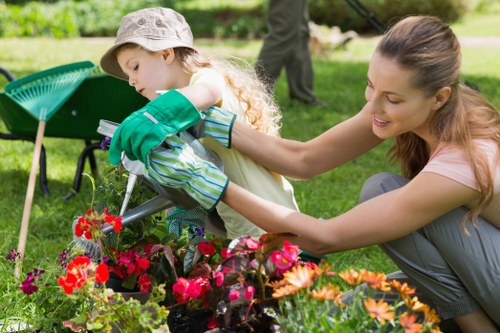
Gardening is a rewarding hobby that not only beautifies your surroundings but also provides a sense of accomplishment and relaxation. Whether you're a seasoned gardener or just starting out, understanding the essentials of gardening can make a significant difference in the health and vibrancy of your plants. In this article, we delve into the world of Gardener Hook, offering valuable insights and tips to help you cultivate a thriving garden.
At its core, gardening involves the cultivation of plants for food, beauty, or medicinal purposes. A successful garden requires careful planning, knowledge of plant needs, and ongoing maintenance. This guide will cover everything from selecting the right plants to effective pest management, ensuring your garden flourishes throughout the seasons.
One of the first steps in gardening is assessing your space and determining the best layout for your plants. Consider factors such as sunlight, soil quality, and available space. By tailoring your garden design to these elements, you can create an environment where your plants can thrive.
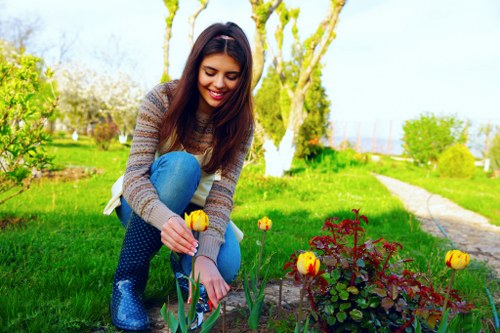
The Importance of Soil Health
Healthy soil is the foundation of any successful garden. It provides essential nutrients, supports plant roots, and retains moisture. To ensure your soil is in optimal condition, conduct a soil test to determine its pH level and nutrient content. Based on the results, you can amend the soil with organic matter, such as compost or manure, to improve its fertility.
Organic matter not only enriches the soil but also enhances its structure, making it easier for roots to penetrate and access nutrients. Additionally, incorporating mulches can help conserve moisture, suppress weeds, and regulate soil temperature, contributing to overall plant health.
Regularly adding compost to your garden beds replenishes essential nutrients and promotes beneficial microbial activity. This natural approach to soil maintenance supports sustainable gardening practices and reduces the need for chemical fertilizers.
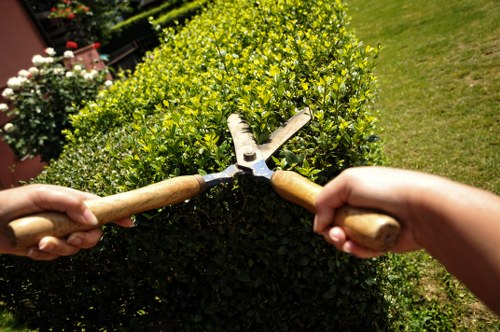
Selecting the Right Plants
Choosing the appropriate plants for your garden is crucial for its success. Consider factors such as your climate, soil type, and the amount of sunlight your garden receives. Native plants are often a good choice, as they are well-adapted to the local environment and require less maintenance.
When selecting plants, think about their growth habits and space requirements. Some plants may need more room to spread, while others are suited for container gardening. Additionally, plan your garden layout to create visual interest and ensure that taller plants do not cast shadows on those that require full sunlight.
Companion planting is another valuable strategy, where certain plants are grown together to enhance each other's growth and deter pests. For example, planting marigolds alongside vegetables can help repel harmful insects, promoting a healthier garden ecosystem.
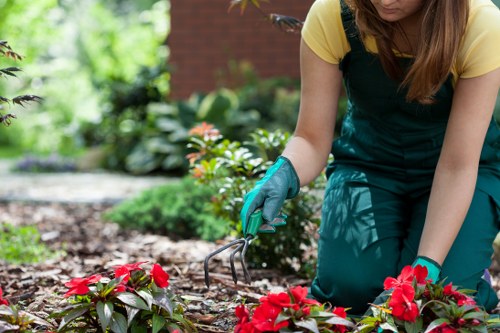
Irrigation and Water Management
Proper watering is essential for maintaining a healthy garden. Overwatering can lead to root rot and nutrient leaching, while underwatering can stress plants and inhibit growth. It's important to establish a consistent watering schedule based on your garden's specific needs.
Drip irrigation systems are an efficient way to deliver water directly to the plant roots, minimizing evaporation and reducing water waste. Mulching around plants also helps retain moisture in the soil, ensuring that plants receive a steady supply of water.
During dry periods, consider implementing rainwater harvesting systems to collect and store rainwater for future use. This sustainable practice not only conserves water but also provides a reliable water source for your garden.
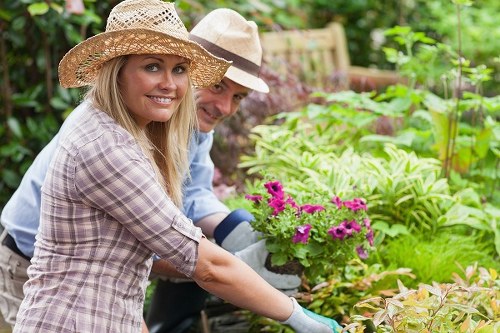
Pest and Disease Management
Protecting your garden from pests and diseases is crucial for maintaining plant health. Regular monitoring allows you to identify and address issues early, preventing widespread damage. Integrated Pest Management (IPM) is an effective approach that combines biological, cultural, and chemical methods to control pests sustainably.
Encourage beneficial insects, such as ladybugs and lacewings, which prey on common garden pests. Additionally, practicing crop rotation and maintaining good garden hygiene can reduce the likelihood of pest infestations and disease outbreaks.
If chemical interventions are necessary, opt for environmentally friendly options and use them sparingly to minimize impact on beneficial organisms and the surrounding ecosystem.
Local Gardening Resources
For those in the Hook area, numerous local resources are available to support your gardening endeavors. Local nurseries offer a variety of plants suited to the region's climate, while community gardens provide opportunities to share knowledge and collaborate with fellow gardeners.
Organizations such as the Hook Horticultural Society host workshops and events that cover a range of gardening topics, from seed starting to landscape design. These events are invaluable for gaining hands-on experience and staying updated on the latest gardening trends.
Additionally, local extension services provide expert advice and resources tailored to the Hook area, ensuring that your gardening practices are aligned with regional best practices.
Nearby Areas Surrounding Hook
- Hamble-le-Rice: A scenic village located just a few miles from Hook, known for its beautiful riverfront and vibrant community gardens.
- Rusper: Approximately 5 miles away, Rusper offers expansive green spaces and gardening centers that cater to both novice and experienced gardeners.
- East Meon: Nestled in the South Downs, East Meon is renowned for its organic farms and sustainable gardening practices.
- Netley: A coastal town about 4 miles from Hook, Netley boasts a variety of public gardens and horticultural events throughout the year.
- Botley: Situated close to Hook, Botley features community-driven gardening projects and educational workshops.
- Woughton: Woughton is known for its extensive plant nurseries and gardening supply stores, making it a favorite spot for local gardeners.
- Fareham: A bustling town near Hook, Fareham offers numerous parks and botanical gardens that provide inspiration and relaxation for gardeners.
- Stubbington: Just a short distance from Hook, Stubbington is home to several private gardens and greenhouses that showcase diverse plant species.
- Netley Marsh: Known for its wetlands, Netley Marsh offers unique planting opportunities and supports a rich biodiversity.
- Titchfield: A historic village close to Hook, Titchfield features charm-filled gardens and traditional horticultural practices.
- Whiteley: Whiteley is recognized for its modern gardening facilities and innovative landscape designs.
- Woolston: This area near Hook is celebrated for its lush public gardens and community gardening initiatives.
- Stubbington Common: Offering open spaces and communal gardens, Stubbington Common is a great place for collaborative gardening projects.
- Ropley: A picturesque village near Hook, Ropley is known for its sustainable gardening communities and eco-friendly practices.
- Lane End: Lane End provides a variety of gardening resources, including tool rental services and plant exchange programs.
Conclusion
Gardening in Hook offers a fulfilling and enriching experience, whether you're cultivating a small backyard garden or managing a larger plot. By focusing on soil health, selecting the right plants, implementing effective water management, and protecting your garden from pests and diseases, you can create a vibrant and sustainable garden space.
Leveraging local resources and connecting with nearby gardening communities can further enhance your gardening journey, providing support and inspiration along the way. Remember, gardening is a continuous learning process, and with dedication and care, your garden will thrive.
Frequently Asked Questions
1. What are the best plants to grow in Hook's climate?
Hook's climate is generally mild, making it suitable for a wide range of plants, including perennials like lavender and echinacea, vegetables such as tomatoes and cucumbers, and a variety of herbs. Native plants are also a great choice as they are well-adapted to the local conditions.
2. How can I improve the soil quality in my garden?
Improving soil quality can be achieved by adding organic matter like compost or well-rotted manure, practicing crop rotation, and using cover crops to prevent soil erosion. Regular soil testing can help you understand nutrient deficiencies and amend the soil accordingly.
3. What is the best time to start planting in Hook?
The best time to start planting depends on the type of plants. Generally, early spring is ideal for planting most vegetables and annual flowers, while autumn is suitable for perennials and trees. Always consider the specific needs of each plant variety.
4. How can I manage pests naturally in my garden?
Managing pests naturally involves encouraging beneficial insects like ladybugs and lacewings, using neem oil or insecticidal soaps, and practicing proper garden hygiene. Companion planting can also deter pests by masking the scents that attract them.
5. What irrigation methods are most effective for a sustainable garden?
Drip irrigation systems are highly effective for sustainable gardening as they deliver water directly to the plant roots, reducing evaporation and water waste. Additionally, using rain barrels to collect rainwater can provide a natural and eco-friendly water source.